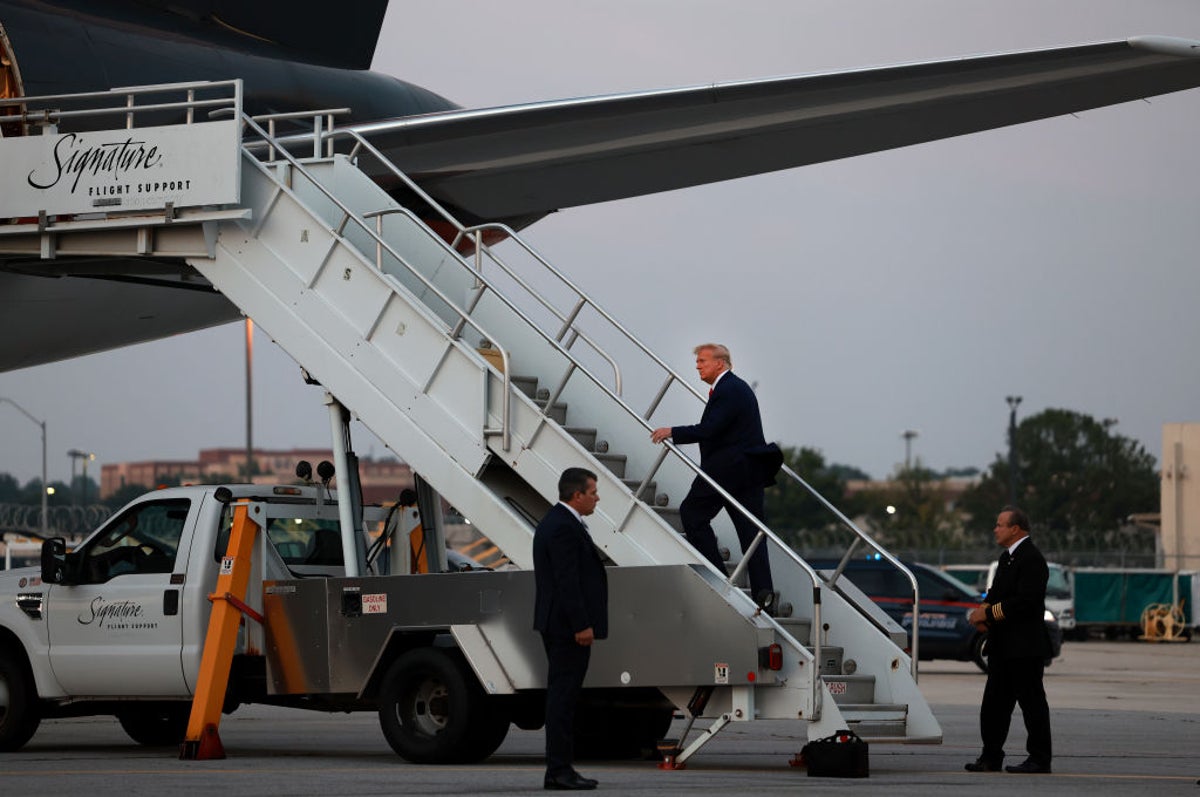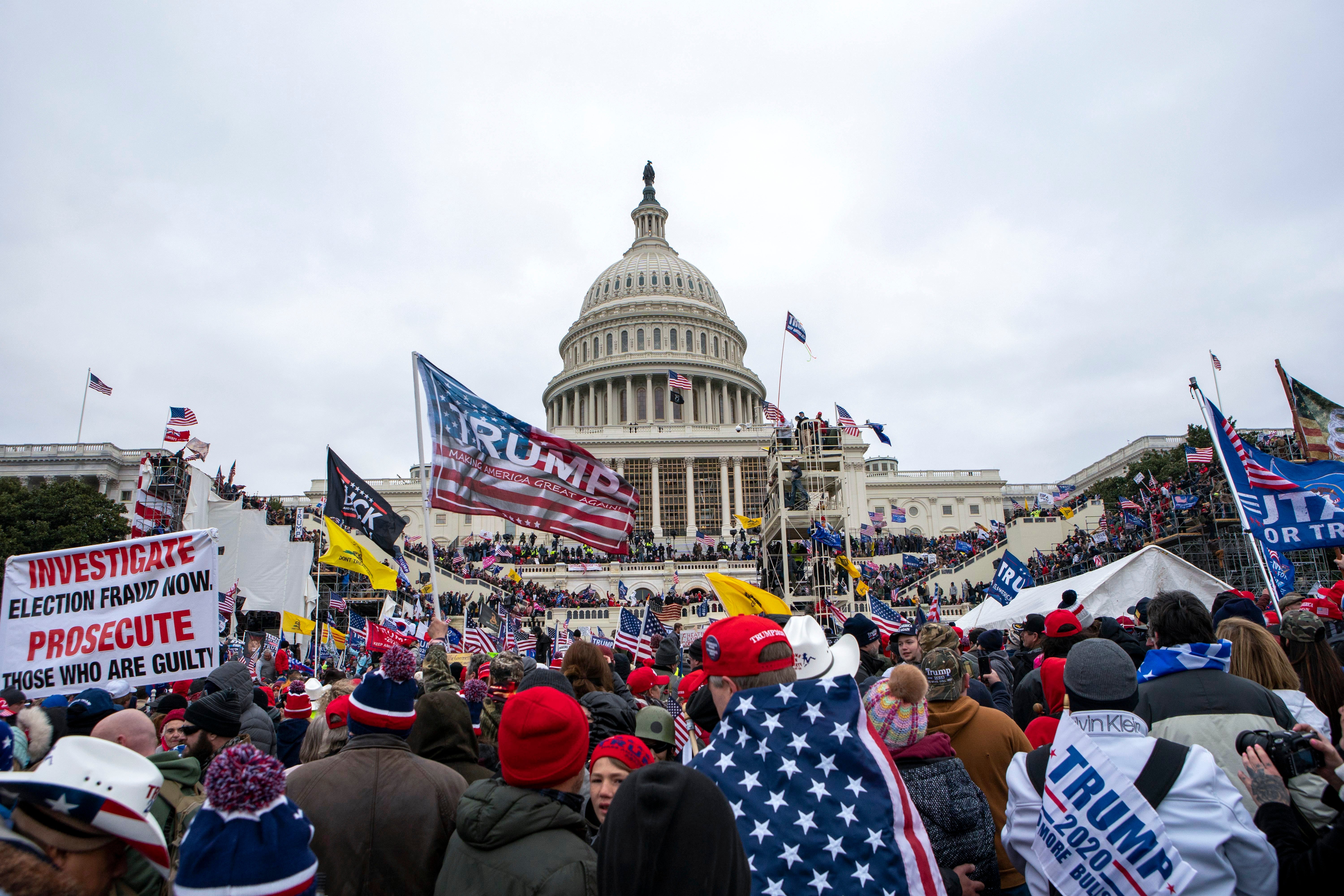
As Donald Trump looks increasingly likely to be the 2024 Republican nominee for president, it continues to look more and more plausible that there could be a serious effort to keep him off the ballot entirely.
Following his presidency ending in a bloody battle on Capitol Hill, Mr Trump remains the de facto leader of the Republican Party, at least among its primary voting electorate.
Recent polls show the ex-president supported by as many as six in 10 of GOP primary voters nationally, while he also continues to hold commanding leads in early primary and caucus states like Iowa, New Hampshire and South Carolina.
But winning a primary election is one thing; winning a general election is another. And as Mr Trump consolidates his support within the GOP, some politicians and constitutional law experts alike are growing more vocal about the possibility of simply denying the Republican Party’s candidate from appearing on the ballot next November at all.
The idea centres around the utilisation of a clause in the 14th Amendment to the Constitution, originally intended to keep supporters of the South’s failed cause of secession from being elected to office, which bars those who take part in insurrections or who have “given aid or comfort to the enemies” of the United States government from taking office. The legal effort to disrupt Mr Trump’s ballot access is being waged primarily by Citizens for Responsibility and Ethics in Washington (CREW).
It’s a bold strategy that would thrust American politics as far into uncharted territory as the Congress found itself in as lawmakers fled for their lives on January 6. But the process itself is fairly simple: legal challenges are filed against any state election officers who ruled that Mr Trump would be listed on 2024 election ballots as a presidential candidate.
Those legal challenges would play out in the courts, with the potential of reaching the US Supreme Court for a final decision.
A handful of left-leaning legal groups, buoyed by donations from liberal groups and other Trump-opposed donors, have pledged to file such challenges. What is still unclear is how successful they will be, and whether Mr Trump will actually be excluded from the ballot in any state. Right now, those lawsuits are playing out in Michigan, Colorado, New Hampshire, Arizona, and Minnesota.

Being excluded from the ballot in even a single state, with the exception of Democratic strongholds where he has no shot of victory, could be devastating to Mr Trump’s re-election bid. In a close election, every electoral college vote matters and an unexpected loss of a single state can be very difficult to make up.
Mr Trump’s inner circle continues to shrug off the possibility of such challenges, calling them far-fetched and not based on serious legal theory.
"The people who are pursuing this absurd conspiracy theory and political attack on President Trump are stretching the law beyond recognition much like the political prosecutors in New York, Georgia, and DC," a Trump campaign spokesperson recently told Axios.
But the truth may be a bit more serious. Much of the pushback from the Trump camp thus far can be summed up by the assertion that none of the January 6 rioters convicted of crimes related to the attack on Congress have been directly charged with engaging in a rebellion or insurrection.
Some, like Proud Boys leader Enrique Tarrio, were convicted of seditious conspiracy, however — and that’s an avenue that could theoretically be used to counter the Trump campaign’s legal defence.
Jonathan Turley, a conservative legal theorist with George Washington University, agrees. He has argued that the attack on Congress was "a protest that became a riot”, dismissing more serious charges filed against militia leaders, and arguing that Mr Trump’s speech on the White House lawn just minutes before the brunt of the violence began did not qualify as incitement.
In a recent Fox News interview, he described the idea as "not simply dubious but dangerous”.
Two other constitutional law experts, professor Lawrence Tribe and former federal judge J Michael Luttig, reject that argument. The duo has recently embarked on a media tour to argue in favour of the plan and defend its basis in law. In interviews, they have argued that the evidence of Mr Trump giving comfort to enemies of the US government is overwhelming, and will be litigated seriously in the courts.
“This is one of the most fundamental questions that could ever be decided under our constitution,” Mr Luttig said during a recent MSNBC interview, adding: “[I]t will be decided by the Supreme Court of the United States sooner rather than later, and most likely before the first primaries.”
One thing remains clear, as the 2024 election nears: The likely Republican nominee will charge into the general election burdened by a staggering and historically unprecedented amount of court-related baggage on his shoulders. With four criminal trials, multiple civil suits and now a campaign to prevent his eligibility underway, Donald Trump has set himself up for the most litigious and expensive campaign season in US history.







